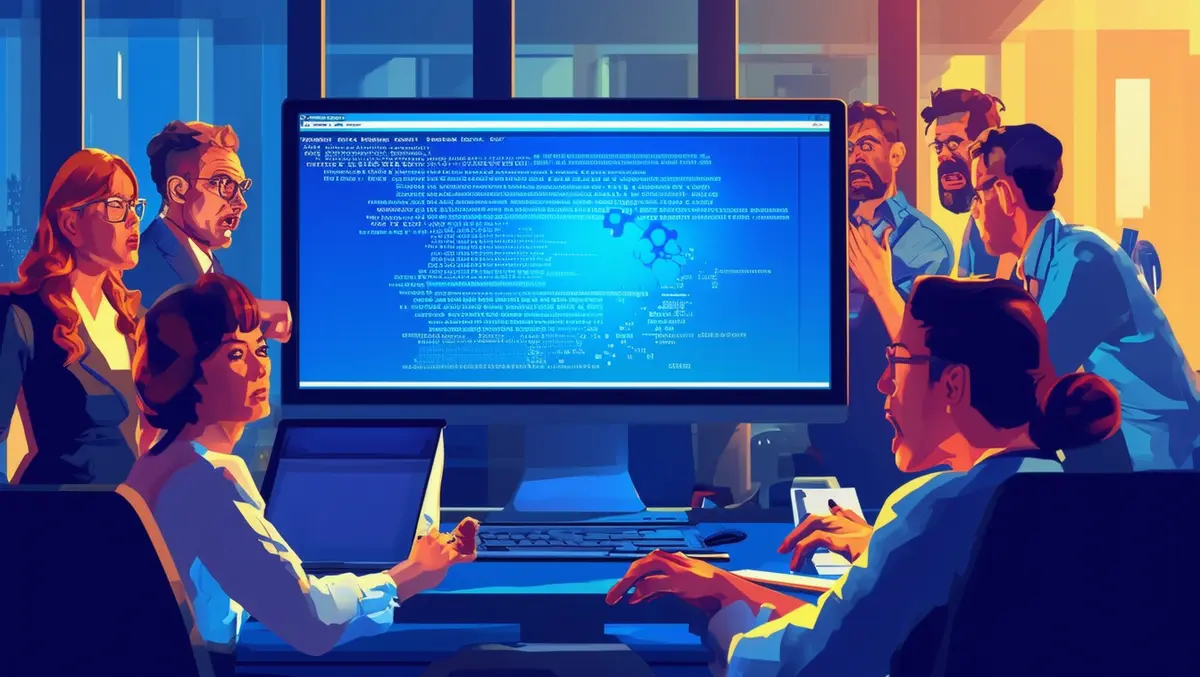
Nexthink study: BSOD affects 1 in 200 devices daily
Analysis by Nexthink has revealed that the blue screen of death (BSOD) affects 1 in every 200 computer devices daily, even under optimal operating conditions.
This figure is based on an examination of 10.5 million devices. The study highlighted that almost half of these crashes are preventable. The volatility of this statistic is evident, especially in the aftermath of significant outages like the recent CrowdStrike incident, which saw the number increase to as many as 1 in 10 devices.
The report also noted significant disparities in device stability across various industries. For example, the technology sector experiences the highest percentage of devices suffering from BSOD incidents at 15.2% per month. This is followed by professional services at 10.9%, industrial manufacturing and energy & utilities both at 10.6%, retail at 10.5%, healthcare at 10.2%, and financial services at 8%.
Gaurang Ganatra, Product Marketing Director at Nexthink, commented on the implications of these findings. “Dealing with the infamous BSOD is one of the most demoralising issues employees can face. Especially for businesses in the tech industry, where it’s far more likely to happen on a consistent basis."
"Unfortunately, although the majority of these crashes are avoidable, most businesses simply don’t have the tools needed to preemptively identify the problem and take action. Most don’t even know which devices are functioning properly right now, never mind which ones are liable to BSOD in the future,” he stated.
Ganatra further elaborated on the costs associated with BSOD incidents. While some crashes are rectifiable by simply restarting the device, others can prove to be much more resource-intensive. They can tie up IT support teams for extended periods and significantly disrupt employee productivity. Even brief interruptions lasting between 0-15 minutes can increase employee frustration. Previous research by Nexthink found that approximately 31% of employees require assistance to resolve BSOD incidents.
The analysis also suggests that by implementing proactive IT systems, businesses can reduce BSOD incidents to 1 in 400 devices per day through preventative measures. This proactive approach involves IT support making data-informed decisions about the best hardware to procure, which maximises performance and minimises future support costs. Enhanced visibility into device performance also helps reduce productivity loss by streamlining workflows and automating repetitive tasks.
Nexthink identified nine primary drivers of BSODs that businesses should focus on addressing: problematic hardware models, poorly managed Windows updates, misconfigured graphic card, network, or audio drivers, poor device configuration, outdated BIOS, overheated devices, installing new software or software updates, newly installed peripherals, and file system errors.
“Preventative IT isn’t rocket science,” emphasised Ganatra. “Most technical issues aren’t confined to a single user or device; our analysis shows they’re constantly afflicting a host of people and organisations. By giving IT support the ability to generate insights, not just about problems affecting devices in their own environment, but about millions of others in use globally, businesses can make data-driven decisions that can reduce costs, relieve employee stress, and increase productivity all in one fell swoop.”


